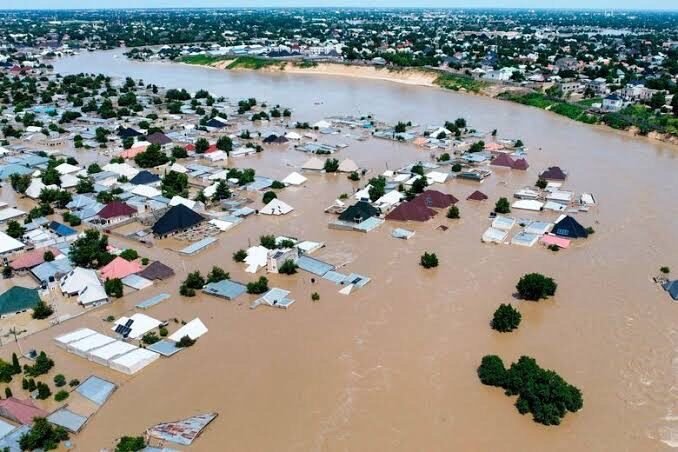The Ibaji LGA Floods has become a nationwide concern as the Ibaji Local Government Area (LGA) in Kogi State, Nigeria, has been completely submerged by raging floodwaters, displacing thousands and threatening national food security. The disaster, triggered by relentless heavy rains and surging levels in the Rivers Niger and Benue, has overwhelmed the region’s low-lying terrains. According to Alhaji Mouktar Atima, Executive Secretary of the Kogi State Emergency Management Agency (SEMA), the catastrophe has affected several communities, with homes, farmlands, and infrastructure vanishing under meters of murky water.
The hardest-hit communities include Ota, Ofogbo, Itima, and Owara in adjacent Kogi LGA. Atima has directed residents along riverbanks to evacuate to safer grounds, warning that the next 72 hours could usher in even more perilous conditions as upstream dam releases compound the deluge. The human toll from the Ibaji LGA Floods is staggering, with preliminary reports indicating over 10,000 people displaced across Ibaji alone. Ibaji is a key agricultural hub renowned for rice production that feeds much of central Nigeria.
Eyewitness accounts from social media paint a grim picture: families wading through chest-high waters clutching salvaged belongings, children perched on rooftops, and livestock swept away in the currents. “Our farms, our livelihoods everything is gone,” lamented one resident in a viral X post, echoing the despair rippling through the affected zones. Health risks loom large, with Atima highlighting the urgent need for cholera prevention amid contaminated water sources.
The state government, crediting Governor Usman Ododo’s swift interventions, has activated 42 internally displaced persons (IDP) camps and an emergency operations center to coordinate relief efforts. These camps, scattered across safer elevations, are already receiving evacuees, though officials admit resources are stretched thin. Humanitarian agencies have been roped in, but Atima stressed the pivotal role of the health ministry in averting secondary disasters.
The immediate public health risks are enormous. Atima specifically highlighted the urgent need for a massive, coordinated cholera prevention effort, as the widespread contamination of drinking water sources; wells, streams, and boreholes creates an ideal environment for waterborne diseases to flourish. The state has appealed to the federal government and international partners for bolstered support, including dredging operations, early warning systems, and resettlement programs to break the cycle of annual devastation.
As Nigeria grapples with what experts call its worst flooding in a decade, projected to impact 15 million nationwide, Kogi’s plight underscores a recurring vulnerability in flood-prone states like Benue, Nasarawa, and Adamawa. “Ibaji’s submersion isn’t just a local tragedy; it endangers the nation’s breadbasket,” Atima warned, urging proactive infrastructure investments.
The long-term effects of this disaster will be far-reaching, with potential consequences for national food security and economic stability. The destruction of farmlands and infrastructure will likely lead to food shortages and price increases, affecting not only the local population but also the broader Nigerian society.
In the face of this catastrophe, prayers and aid are pouring in from across the country. However, as waters recede, the real recovery battle begins – one that demands unity beyond borders and seasons. The state government, federal authorities, and international partners must work together to provide support, resources, and infrastructure to help affected communities recover and rebuild.
Ultimately, the Ibaji LGA Floods serve as a stark reminder of the importance of proactive measures to mitigate the impact of natural disasters. By investing in infrastructure, early warning systems, and disaster preparedness, Nigeria can reduce the risk of future catastrophes and protect its citizens from the devastating effects of flooding.











